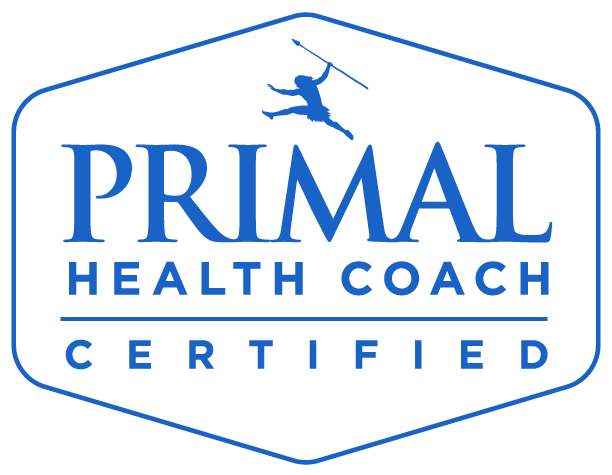What is the Autoimmune Protocol?
/The Autoimmune Protocol is an elimination and reintroduction diet that is used to help individuals with autoimmune disease identify food allergies and sensitivities, address nutrient deficiencies, and heal their bodies. By using food as medicine, the autoimmune protocol works on reducing inflammation, restoring gut balance, and decreasing autoimmunity. By adding in nutrient dense foods and removing inflammatory and allergenic foods, the immune system is given the opportunity to cool down. The protocol also goes beyond the plate, with a focus on lifestyle factors like movement, sleep, stress management, connection, play, and time in nature.
WHAT CAN I EAT?
When taking on an elimination diet like the AIP, it’s easy to get stuck in a rut focused on the foods you cannot eat. Instead of this focus, switch your mindset to one of abundance. Think about all the delicious, nutrient dense foods you can eat. This simple reframe helps make the AIP sustainable and approachable.
Download the Yes, No, Maybe So List to your phone or mobile device for a quick and comprehensive reference for what is, is not, and may be compliant (after reintroduction). Keep it pinned on your smartphone desktop for easy access on the go.
WHAT SHOULD I AVOID?
Grains (corn, wheat, millet, buckwheat, rice, sorghum, amaranth, rye, spelt, teff, kamut, oats, etc.)
Gluten (be careful of hidden sources)
Legumes (includes all beans, soy, and peanuts)
Dairy
Refined sugars and alternative sweeteners (including Stevia)
Modern vegetable oils (ex. canola)
Eggs (especially whites)
Nuts
Seeds (including coffee, and seed based spices)
Nightshades (potatoes, tomatoes, eggplant, sweet and hot peppers, cayenne, red pepper, tomatillos, goji berries, and spices derived from peppers including paprika)
Alcohol
Chocolate (and cocoa)
NSAIDs* (like aspirin or ibuprofen)
Overconsumption of fructose (above 10-20 grams of fructose per day)
Emulsifiers, thickeners, preservatives, chemicals, and other food additives
If you have Celiac or known gluten sensitivity it is wise to eliminate potential gluten cross reactive foods as well. Learn more here.
A Note on NSAIDs
NSAID’s pose a risk to the gut micro biome and lining, but so does the stress caused by uncontrolled pain. Ideally it is best to eliminate NSAIDs. Unfortunately, for many this is not always a possibility. Eileen from Phoenix Helix has a great article on her experience with painkillers and AIP here.
IT’S NOT FOREVER: AIP REINTRODUCTIONS
The elimination phase of the AIP is not meant to be a forever diet. Reintroductions can bring both variety and a boost of nutrition to your meals. The goal is to eventually transition to a paleo template with the elimination of foods you don’t tolerate during reintroduction, while eating as much variety as possible. Maintain the elimination phase until your symptoms substantially decrease or you achieve remission, with a minimum of at least 30 days. If you are still actively experiencing symptoms it will be very difficult to differentiate between an every day symptom and a food reaction.
Start with a small bite of the reintroduction food, preferably about 1/2 teaspoon and wait 15 minutes to see if you have a reaction. If you don’t react, eat 1 tsp of the food and wait another 15 minutes. If you are still in the clear eat 1.5 teaspoons of the food and wait a few hours. If you still have no reaction eat a normal serving size, but do not go over board.
Do not eat the food, or any other reintroduction, for at least three days. Reactions can be delayed up to 72 hours, so it’s important to continue monitoring for reaction symptoms while not introducing any new foods. After 72 hours you may proceed to the next introduction.
OTHER LIFESTYLE FACTORS
SLEEP
Adults need at least 7 to 9 hours of sleep a night, yet it seems to be the first thing
we push down the priority scale for something else.
The regulatory component of the immune system goes to work during the sleep cycle, so when you skimp on sleep the immune system is undoubtedly affected. Even just a night or two per week can cause inflammation and disrupt your circadian rhythm. Adequate sleep enhances cognitive functioning, creativity, and just puts you in an all around better mood. Sleep also helps weight loss and maintenance and decreases the risk of infection.
STRESS
High stress levels are an epidemic of modern society. Being under chronic stress increases inflammation and decreases immune system functioning. Reduce stress by removing undue stressors and responsibilities from your life. Make a list of your energy drainers and boosters and make efforts to remove the drainers.
Resiliency is also an important component to stress management. Resiliency is your ability to bounce back and adapt to the stressors in your life. Meditating, breathing, proper sleep, exercise, connection, mindfulness, play, and time spent in nature can all help to increase resiliency.
MOVEMENT
Incorporating movement throughout the day is an essential piece to immune health. Exercise doesn’t have to be scary, or super demanding. Make it fun and just to work to improve your activity level a little bit each day. Maximize your time: stand instead of sit while working, take laps around the office or do squats at your desk every hour, go for a walk on your break, take the stairs twice, do whatever you can to add in movement throughout the day.
The Primal Blueprint Fitness Pyramid provides an approachable structure for an exercise program that can be adapted for anyone. The 4 full body functional movements are pushups, pull ups, squats, and planks. Each movement should be modified based on your ability and fitness level until you meet mastery. For further explanation and video demonstrations learn more here.
CONNECTION
In today’s busy society we often lose touch with friends and family or put social time aside. Connection and social bonding helps us to build resilience, find support, and improves mood. When we are connected with others the good hormones flow and help to reduce inflammation. A good support system also makes it easier to take on many of these changes as you can go at it with a team approach. If you need the added supported on your AIP journey, check out my health & wellness coaching services.




















